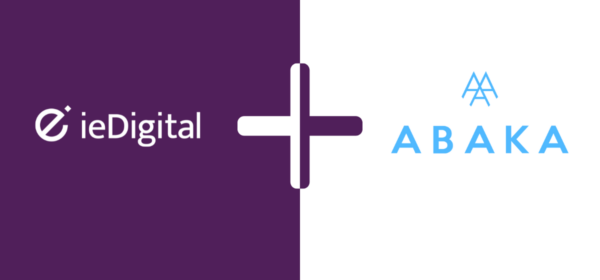My colleague Swamini Khanvilkar wrote about ‘How culture is the key to customer-centric digital transformation’ recently. This follow-up article is about underlining some of the facets that make for a successful cultural transformation of your business. While you may think it begins and ends with senior leadership, this isn’t necessarily true.
I’m not a fan of the phrase soft skills, as it can conjure negative connotations around softness as a weakness. The more emotionally intelligent among us know it’s a strength to be naturally endowed with empathy, and have the tools to care for and support the people around us. Many of us think soft skills are a waste of time. However, it’s a well-used, recognised phrase that many can connect with, so let’s talk about what we mean by soft skills.
Leaders can facilitate change, but effective and long-lasting change emanates from the people within an organisation. And it takes different types of people to change successfully. While hard skills such as writing, computer engineering and mathematics are essential for running a financial services business with a handsome level of competency, soft skills are the synapses that mesh people and their distinctive personalities together, and one cannot successfully function without the other. Sadly, soft skills have arguably been the poor cousin to hard skills in recruitment circles over the years, particularly in traditionally male-dominated industries such as financial services and technology. And with a lack of soft skills, what happens to the sensitive balance of cultural harmony in the workplace? Here are a few things to ponder …
Soft skills have arguably been the poor cousin to hard skills in recruitment circles over the years, particularly in traditionally male-dominated industries such as financial services and technology.
If you work in a satellite office in Liverpool, why do people in London say you have to travel to them to attend meetings? How does that make the people in Liverpool feel? Are they less important than their colleagues in London? And how do you tackle remote working now that office space is a premium? If deliverables are clear, you can work from anywhere. If you’re the remote worker, are you being left out in the cold by those in the office? Do they consider you “less serious” about your job? Because they can’t see you, do they think you’re watching daytime TV?
And so to communication, the improving of which isn’t just about having a drink with a different department, or sharing a joke in the canteen. That’s social communication, which is important, but not as important as business communication, which is the bedrock of collaboration, productivity and fulfilment. Effective business communication utilises your soft skills to the max. Smalltalk about last night’s football match wouldn’t pass muster when the real conversation is about how to collaborate on a project and harness the power of your individual knowledge. Firstly, you have to have the soft skill of recognising other people’s strengths and then know how to approach the idea of working together to make something better, before eventually sharing the rewards.
Productive, flexible culture
Your colleagues are introverts, extroverts and everything in between! Some are happy working silently in a corner, while others are more productive when there’s a buzz around the place. Some people are forced to come into the office for no other reason than to show their face and be a part of the team, even if that team doesn’t notice whether they’re there or not. The 9-to-5 culture isn’t the same as a productive, flexible culture.
What about holidays? Vacation is a trending topic, as is equality for parental leave. Companies aspire to be like Netflix in terms of omni-channel prowess, yet Netflix has been doing flexible vacation for years, so why not aspire to be like that too? It’s about trust, which is another soft skill to master.
Create an environment that rewards people. Say thanks when you’ve worked with someone and when they’ve done something for you. Be nice to the people around you. There are Machiavellian people in your office too, and they will play their games to get ahead. Stand your ground, do good work, and if you’re not noticed and rewarded for the work you do, don’t be afraid to move on. With evidence that you deliver results, backed up by a good portfolio, you can work anywhere, whether you’re 22 or 62.
And think about your influence on others, and the effect you have on helping others tackle their day to day tasks. Do you work better alone? Are you a part of a regular team that meets up? You were perhaps invited to a meeting for a reason, so be an active participant (or tell them you’re not sure you can make a difference). Be honest with yourself and those around you.
The only digital in the village
Culture comes from people talking to one another and communicating well, whether that’s on a call from New York to Bangkok, or over a coffee in the office kitchen. Poor culture thrives on people talking behind one another’s backs, gossiping and complaining. Good culture comes alive piece by piece by communicating openly, respecting others (whether they deserve it or not) and doing good work. Bring your a-game to the table and the culture will follow, as long as you harness the power and potential of your soft skills.
Do fintech challengers do this better than anyone else? Of course, they have their own struggles as they grow and age, but their starting point is a good one because they generally recruit well and have little legacy to contend with. This may change as they become bigger, bolder and more focused on the bottom line. Yet, the savvy among them will remember the soft skills it took to get started in the first place.
In larger organisations, you may feel isolated because you’re “the digital one” that’s trying to help the company manage its survival in an increasingly digital world. Others may be suspicious of you, your knowledge, your salary and your influence. How does that make you feel? You know you’re part of a thriving culture of openness and selflessness when your individual skills are embraced by your colleagues, and they’re excited to see what you can bring to the business. Adaptability is an important soft skill.
These are all snippets of cultural challenges that are, as Forrester’s Alyson Clarke suggests, “barriers to digital transformation”. She adds: “And while the wrong culture will do more to impede your progress than any other factor, many digital leaders try to ignore it, because as a soft competency, culture is one of the hardest aspects of digital transformation.”
If you’re in a position of leadership, culture shouldn’t be underestimated, nor should the soft skills at the heart of its success. As you’re undergoing your own digital transformation, take pride in your multicultural workforce – the timid, the shy, the boisterous and ballsy – and reward them with all the thanks you can muster. It’s not you transforming the business from within. It’s them.
If you’re in a position of leadership, culture shouldn’t be underestimated, nor should the soft skills at the heart of its success.














